Although Cornell University has the highest acceptance rates of all Ivy League schools, this does not mean that it's an easy school to get into. To be a competitive applicant for any of these eight prestigious institutions, you cannot slack off when it comes to your applications. Start planning your acceptance strategies early, which means studying hard at school and planning ahead for your standardized tests. If you have not been involved in an extracurricular activity since childhood, plan to seriously commit to an activity as early as you can. Choose something you love to do as this will be evident in your application components.
Most importantly, do not choose to go to an Ivy League school for appearances. Choose a program you actually want to attend and graduate from, rather than a program that will look good on your CV. Prestige and social status do not necessarily translate into better educational fit for you. Choose happiness and invest in your education in a school you truly want to attend.
The Ivy League is an American collegiate athletic conference comprising eight private research universities in the Northeastern United States. The term Ivy League is typically used beyond the sports context to refer to the eight schools as a group of elite colleges with connotations of academic excellence, selectivity in admissions, and social elitism. Its members are Brown University, Columbia University, Cornell University, Dartmouth College, Harvard University, the University of Pennsylvania, Princeton University, and Yale University.
The institution was founded in 1746, making it the fourth oldest university in the United States. It is a medium-sized institution with around 5,000 undergraduate enrollments, and like Harvard, has an extremely competitive acceptance rate of only 5%. Some of its most popular degrees include computer engineering, public policy analysis, and economics.
It is rated #2 of the best colleges in America to study political science and public policy analysis. SAT grades range from 1440 to 1570 and ACT grades range between 32 and 35. You can also use our write-ups in our Ivy League statistics to learn more about the geographic diversity of admitted classes to the eight Ivy League colleges. Even though Ivy League schools have impeccable reputations, they do not produce the most students who ultimately earn doctorate degrees. According to a 2010 CBS Money Watch report, liberal arts schools dominated the top 10 list of students who eventually earned doctorates. For example, liberal arts schools produced twice as many students with science doctorate degrees as compared to other institutions, including Ivy League schools.
If you are planning to pursue a doctorate, you might look beyond Ivy League possibilities and examine additional opportunities. It is easy to say "plan ahead", but there is a lot of advantage in knowing what school and program you would like to attend in the future. If you are certain about which school you want to enroll in, it might be wise to apply through the Early Action/Early Decision program.
This way, your deadline for application is earlier, but so is your response date. To utilize this opportunity, you must research your school of choice and determine whether you are a good fit for the program to which you're applying. Early Action programs give you an early answer as to where you stand in the admissions process. According to most recent data, Cornell's acceptance rates for their early decision program is 22.7%! Acceptance rates at Ivy league schools are between 5% and 10%, which in practical terms means that they reject times more applications than they accept.
While getting into the Ivies is obviously quite challenging, knowing how to present students in the best possible light can significantly improve the odds of success. For students with all-star statistics (test scores, GPA's etc.), having anything less than stellar applications can negatively impact the likelihood of acceptance. Applications prepared by NC Global's team of admission experts have yielded significantly better outcomes, including far more likely acceptance into Ivy League colleges and universities. Each Ivy League college has its own unique accomplishments that make it important.
All carry a certain reputation with them, and each school has programs that excel primarily in the medical and law fields, making them some of the most sought-after schools in the world. Their admissions process is very selective, which helps the schools ensure that they only accept the best and brightest. Many famous people have graduated from Ivy League schools, including recent presidents George W. Bush, Bill Clinton, and Barack Obama. This prestige leads many to believe that these colleges are only for the wealthy and elite.
Often, companies look for Ivy League graduates as potential employees, usually preferred by law firms, medical facilities, and large corporations. It has long been coveted to have earned a degree from an Ivy League school. Today, there are other competitors that some claim to be just as good as their Ivy counterparts. Some of these well-known schools include Duke University, Johns Hopkins, MIT, Vanderbilt, and Georgetown University, to name a few. The Ivy League schools are still excellent in both academia and in sports, and they have left a legacy of higher education with an exceptional track record and reputation to go along with them. As late as the 1960s many of the Ivy League universities' undergraduate programs remained open only to men, with Cornell the only one to have been coeducational from its founding and Columbia being the last to become coeducational.
Before they became coeducational, many of the Ivy schools maintained extensive social ties with nearby Seven Sisters women's colleges, including weekend visits, dances and parties inviting Ivy and Seven Sisters students to mingle. This was the case not only at Barnard College and Radcliffe College, which are adjacent to Columbia and Harvard, but at more distant institutions as well. The movie Animal House includes a satiric version of the formerly common visits by Dartmouth men to Massachusetts to meet Smith and Mount Holyoke women, a drive of more than two hours. Ivy League schools happen to be ranked among the best institutions for higher learning in the world for various reasons unique to each university. Though most think what determines an Ivy League is its prestige, it actually began as the athletic conference the schools belonged to.
Each institution has rigorous admissions and an excellent graduation rate, and each one would be an excellent choice. However, we always recommend researching which school and its programs best fit with your individual education plan before applying. Although it's important to always aim for the sky and dream big, setting realistic goals for yourself is just as important. Hundreds of colleges out there can deliver better education to admitted students than the Ivies. Many of these schools, like "Public Ivy" universities are also more accessible and offer lower tuition fees, considering how the Ivies do not offer applicants any merit-based financial aid (only need-based aid).
Ivy League schools have a reputation for being elite institutions, with high selectivity during the admissions process. Harvard University is currently the most selective university in the country. Out of 57,435 applications received for the Class of 2025, Harvard admitted only 3.4 percent of applicants. While the admissions process is extremely selective, it is not impossible for first-generation students to earn a spot in these world-class schools.
For example, 16 percent of Yale's Class of 2025 are the first member of their family to attend university. However, the Ivy Leagues have recently come under fire for their admissions processes, which critics say favors legacy students to the detriment of minority students. That is, a rise in the number of discrete students cannot fully explain the decline in acceptance rates at selective colleges in recent years.
10 faculties are offering undergraduate and graduate-level programs in fields differing from professional fields like law, medicine, and business to degrees in liberal arts and social studies. Being a private university, it is more costly than many well-ranked public universities in the United States. It is best known for its residential housing policy, its architecture, and its outstanding programs in the social sciences and performing arts. In particular, it's History, Sociology, Anthropology and Psychology departments are among the best int the world. Students live in one of 14 residential areas based on their academic pursuits, and remain there throughout their four undergraduate years. Yale believes that its residential colleges foster a sense of strong community and also allow for cooperation among students who share a common passion.
Believe it or not, the Ivy League might not be the best place for you! If you don't like cold weather, you may want to consider a prestigious university like Stanford. Many top-ranked non-Ivy universities also offer specialized programs not available at an Ivy League school.
Research will help you determine if an Ivy League provides the programs and opportunities you need to land your dream job. Also, consider Ivy League acceptance rates, and don't forget to apply to a few schools that fall into your target and safety ranges. It is located in Cambridge, Massachusetts, and is a medium-sized school with around 7,000 undergrad enrollments. Harvard is also a very competitive school as the acceptance rate is only 5%. Accepted students' SAT grades typically range from 1460 to 1580, and their ACT grades range between 33 and 35.
Harvard is rated #1 for biology studies and political science studies according to Niche's 2020 Best Colleges. University of the People is a member ofHarvard Business School Online's (HBS Online's) Collaborating Colleges program. Harvard Business School Online offers a unique and highly engaging way to learn vital business concepts via an innovative online platform that brings the Harvard Business School classroom to you.
Some of the world's most prestigious institutions for higher learning are on the list of the U.S. list of Ivy League schools. These private institutions are known for their highly selective admissions process, rigorous academic programs, and their habit of graduating future leaders. Liberal arts colleges, both private and public, are located all over the United States. If you prefer to live in a certain part of the country or want to stay close to home, the location of Ivy League schools might be a consideration. Because all Ivy League schools are private universities, tuition costs are higher for students compared to their in-state public tuition alternatives. However, Ivy League schools also have the reputation for being generous with financial aid due to their large endowments.
In Yale's recent admissions cycle, 6.6% of applicants were accepted, which is around the average acceptance rate for all Ivy League schools combined. Annually, the average tuition cost plus fees for a year of study at Yale is approximately $58,000. Interest in this answer stems from the Ivy League being synonymous with America's most selective, prestigious, and elite colleges. In other words, not only are Ivy League acceptance rates among the country's lowest, each school carries a strong brand name that follows its alumni throughout their educations, careers, and networks. All eight are in the top 20 for number of sports offered for both men and women among Division I schools. Unlike most Division I athletic conferences, the Ivy League prohibits the granting of athletic scholarships; all scholarships awarded are need-based .
In addition, the Ivies have a rigid policy against redshirting, even for medical reasons; an athlete loses a year of eligibility for every year enrolled at an Ivy institution. Additionally, the Ivies prohibit graduate students from participating in intercollegiate athletics, even if they have remaining athletic eligibility. The only exception to the ban on graduate students is that seniors graduating in 2021 are being allowed to play at their current institutions as graduate students in 2021–22. This was a one-time-only response to the Ivies shutting down most intercollegiate athletics in 2020–21 due to COVID-19. Ivy League teams' non-league games are often against the members of the Patriot League, which have similar academic standards and athletic scholarship policies . Accepted students in Ivy League Schools pay an average tuition fee of $56,631.
Even though Harvard University has the lowest acceptance rate based on admissions statistics, it has the lowest tuition fee of $51,925. Graduates of Ivy League schools can expect high average early career salaries and low total debt upon graduation due to the universities' extensive student grant and financial aid packages. Ivy League educations are prominent in the upper echelons of American business, with nine members of the 2021 Forbes 500 list having attended an Ivy League school.
As of 2019, Harvard University had the most billionaires attend at 1,830 , and the prestigious university could also boast about having the most presidents attend, including both Roosevelts and John F. Kennedy. After the Second World War, the present Ivy League institutions slowly widened their selection of students. Your high school coursework is the biggest evidence of your academic abilities. The single most important document in your application is your high school transcript. Not only does it tell the admissions committee what kind of grades you received throughout the years, it also demonstrates your drive, dedication, and improvement over time. Impress the adcoms with a broad range of challenging courses, that you enjoy and find interesting.
Try to take courses in different disciplines, including sciences, arts, humanities, and languages. To increase your chances of success, take courses in disciplines you typically ace but do not forget to complete necessary requirements for graduation. You can find a study partner, ask your teacher for help, get a tutor, or design a study plan that would increase your understanding of the content. It was founded in 1865 and has a total undergraduate population of around 15,000 students. It has world class programs in Agriculture, Hotel Administration, Applied Social Sciences, and Labor Relations.
Cornell has more than 1000 clubs, and a large Greek system which comprises more than 60 fraternities and sororities. Always at or near of the top of everyone's list of best colleges, Harvard is the oldest college in America, founded nearly 400 years ago in 1636. As such it is steeped in tradition, and unsurpassed in the quality of its programs, research, professors, and overall academic experience.
It is relatively small, with less than 7000 undergraduates spread across more than 50 majors. While earning your LAS degree, you can choose from over 50 concentrations, many of which are interdisciplinary. About a third of classes at Harvard satisfy core requirements, while the rest satisfy a concentration or dual concentrations.
You would be hard pressed to find a concentration that is not considered among the best and most respected throughout the world. Similar to a high GPA, high SAT or ACT scores demonstrate your academic aptitude to the admissions committee. An excellent way to gauge if your score is in the ballpark of where you need it to be for your application to an Ivy League school is to check its class profiles. In your search for quality education institutions in the US, the name Ivy League is bound to come up. The elite group of educational institutions has been a constant source of fascination and aspiration amongst students who wish to pursue higher studies in the United States. But what is Ivy league exactly, who all are included in the list of ivy league colleges?
I created a table with each school's ranking, location, and undergraduate enrollment. The average ranking is based on counting the school's US News ranking twice. You can click on each school's link to see the average high school GPA of admitted applicants, its standardized test scores, and its acceptance rate. The Ivy League schools are highly selective, with all schools reporting acceptance rates at or below approximately 10% at all of the universities.
For the class of 2025, six of the eight schools reported acceptance rates below 6%. Admitted students come from around the world, although those from the Northeastern United States make up a significant proportion of students. Founded in 1701, Yale University is home to not only the top-ranked law school but the highly regarded Yale School of Drama as well. Other unique programs offered at Yale include the Betty and Whitney MacMillan Center for International and Area Studies where students are educated on international affairs, cultures, and societies around the world. Yale also offers 12 professional schools including schools of law, medicine, management, art, and nursing.
Yale was also the first institution in the country to award doctoral degrees to students. As the only Ivy League founded in part by Benjamin Franklin, University of Pennsylvania was founded in 1740. Another distinguishing item that sets U Penn apart from the other Ivy Leagues is that it has the highest international student enrollment with students hailing from more than 100 countries. There is a mix of liberal arts curriculum as well as professional education from students to choose from. The top-ranked schools include the Wharton Schools, the School of Engineering and Applied Science, and the Perelman School of Medicine.
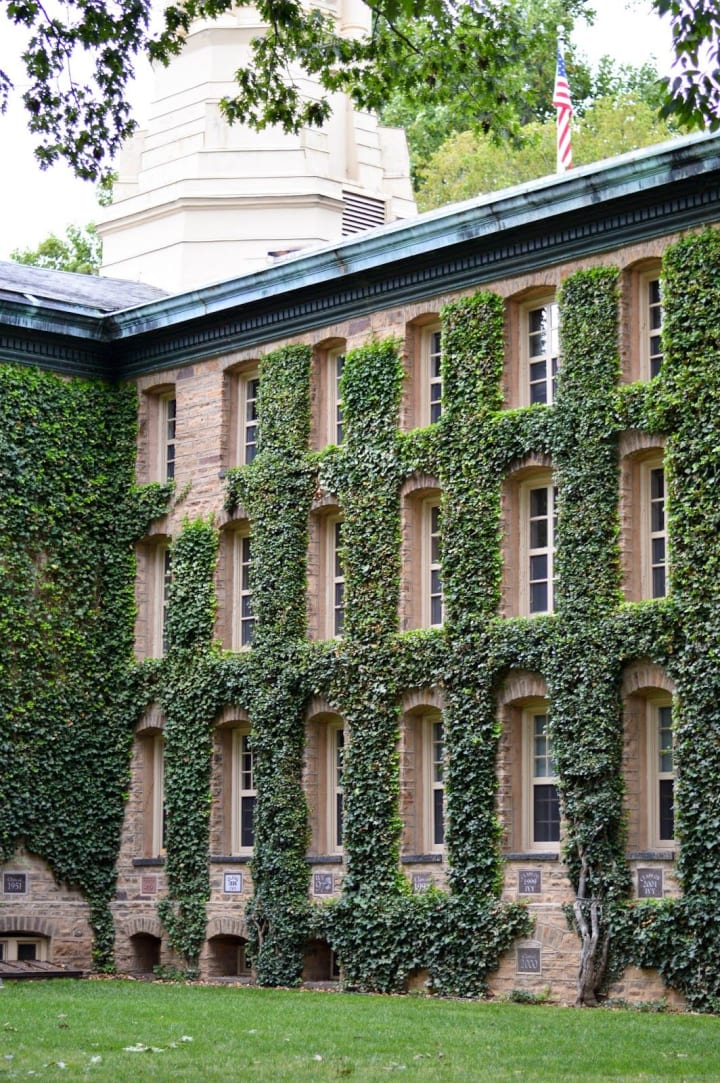

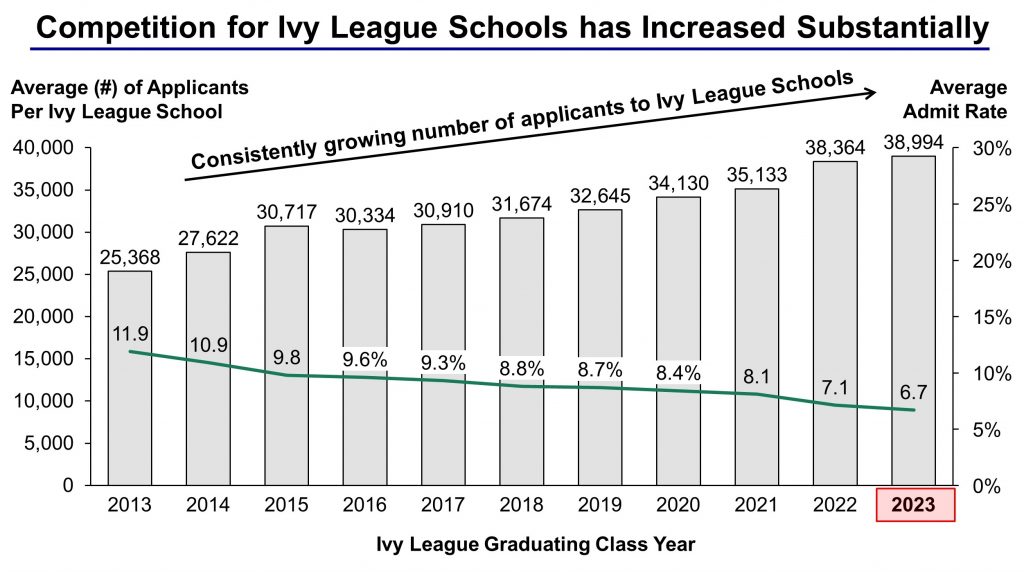







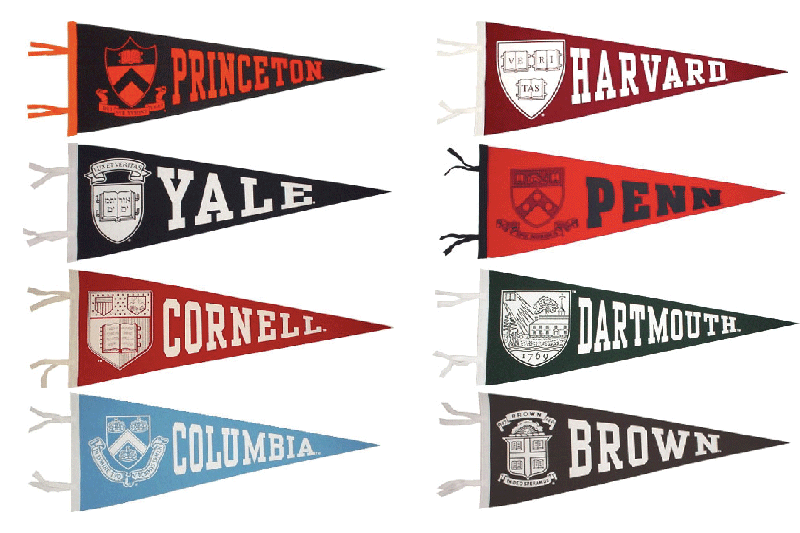





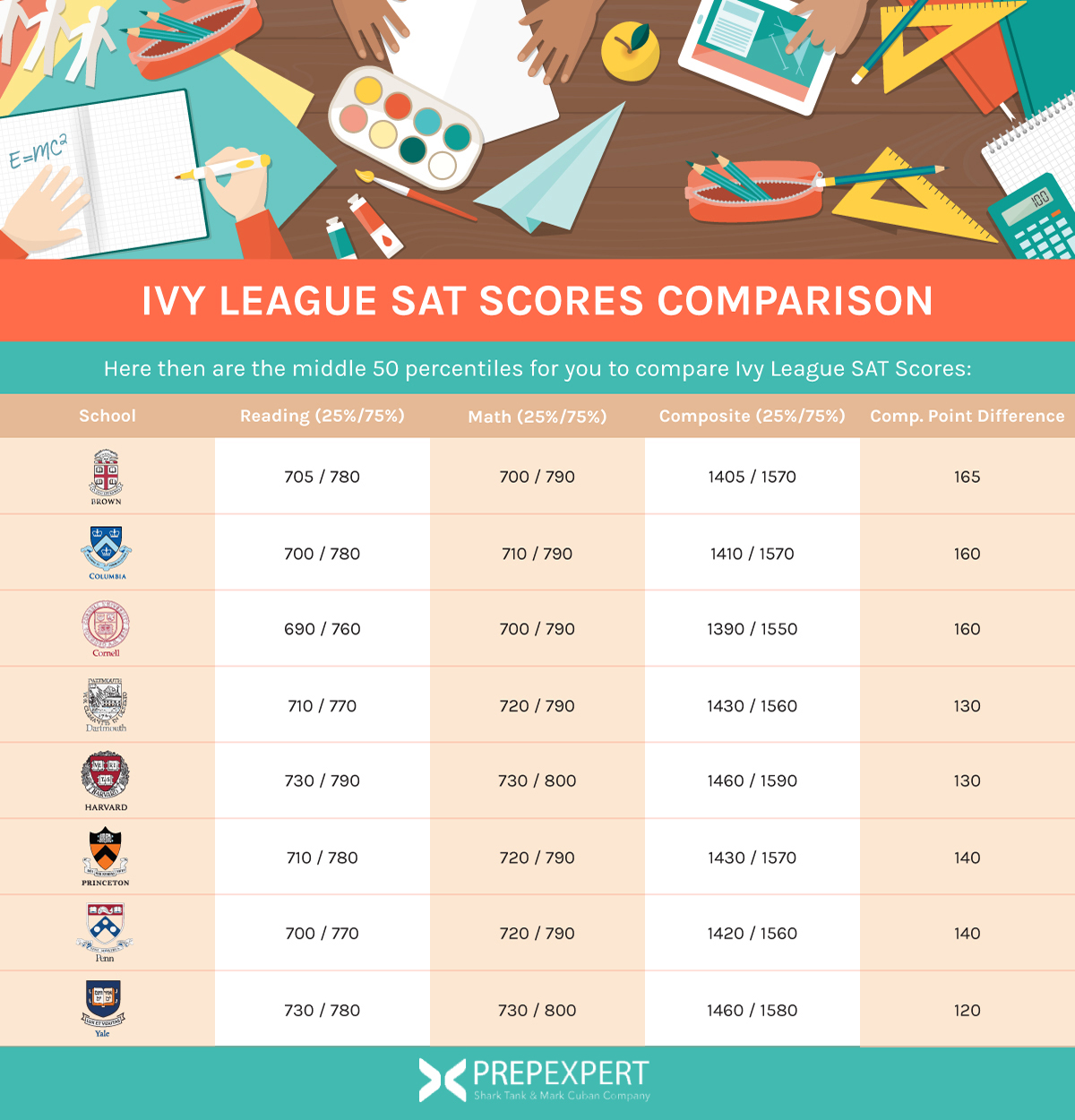








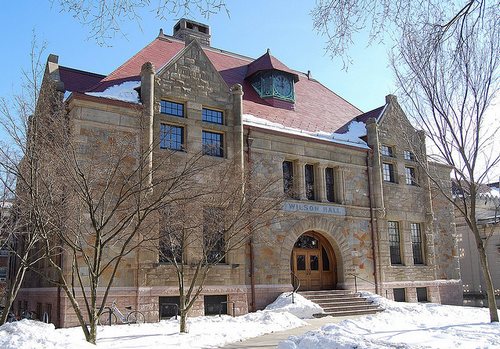
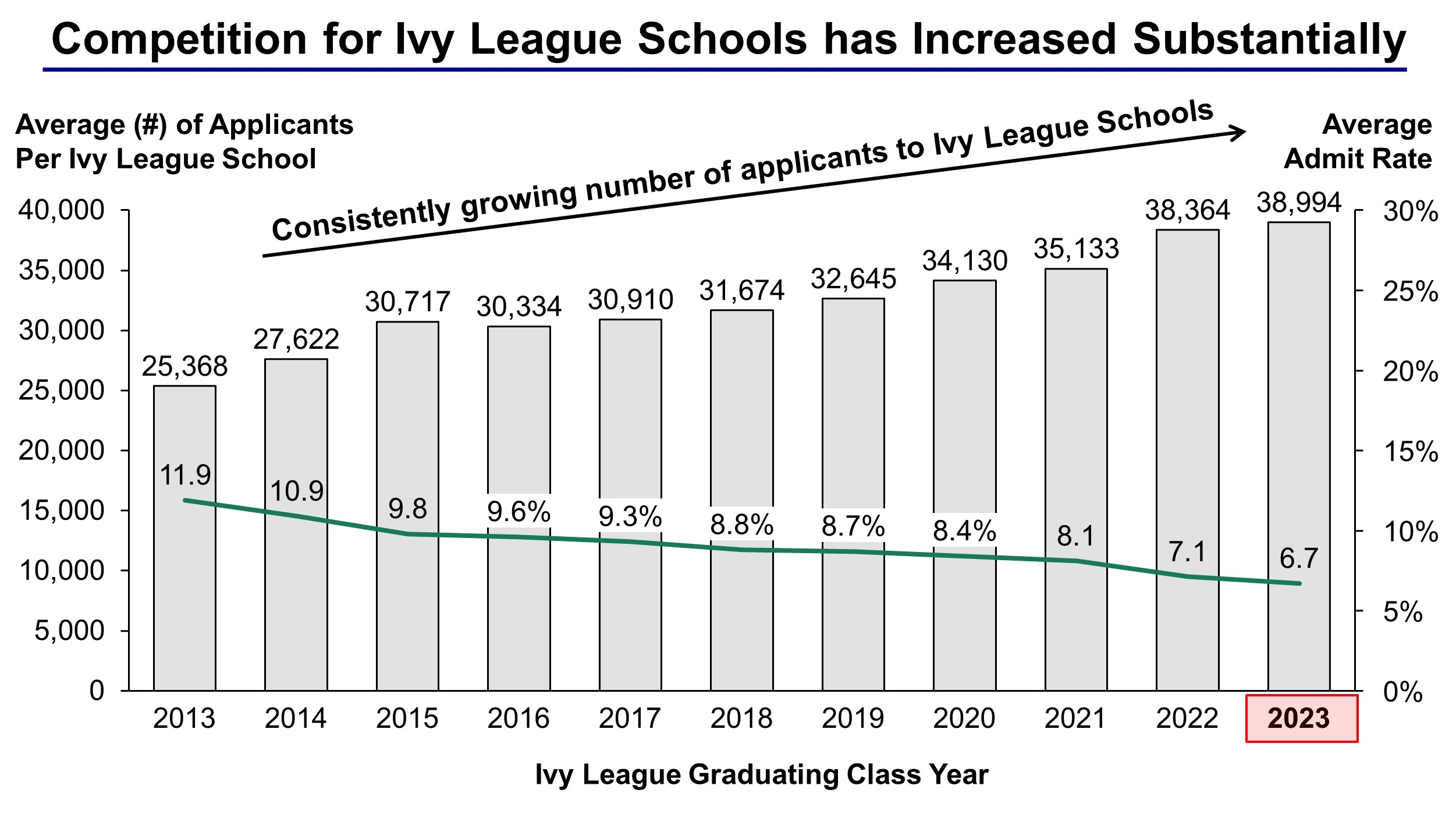

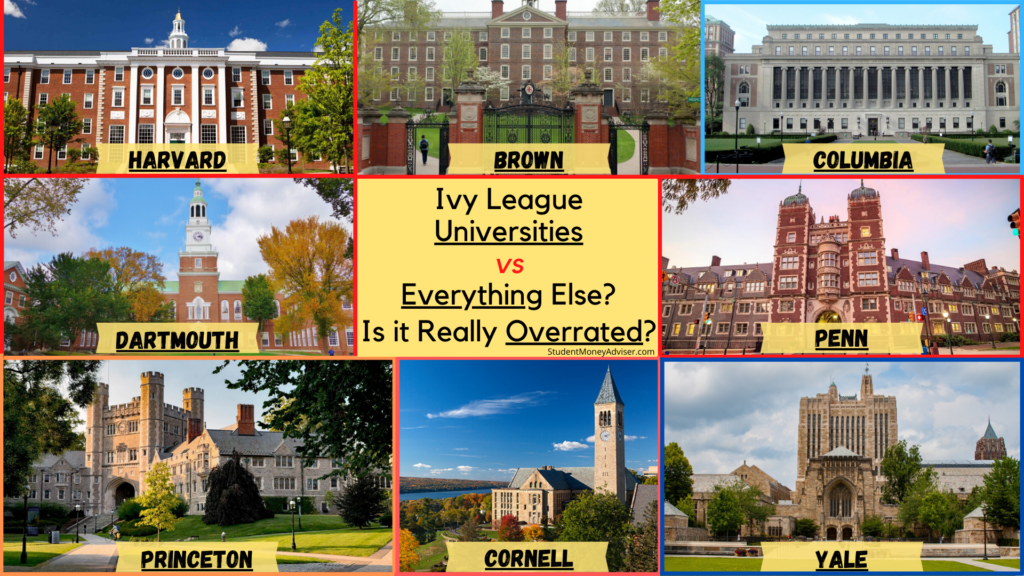

No comments:
Post a Comment
Note: Only a member of this blog may post a comment.